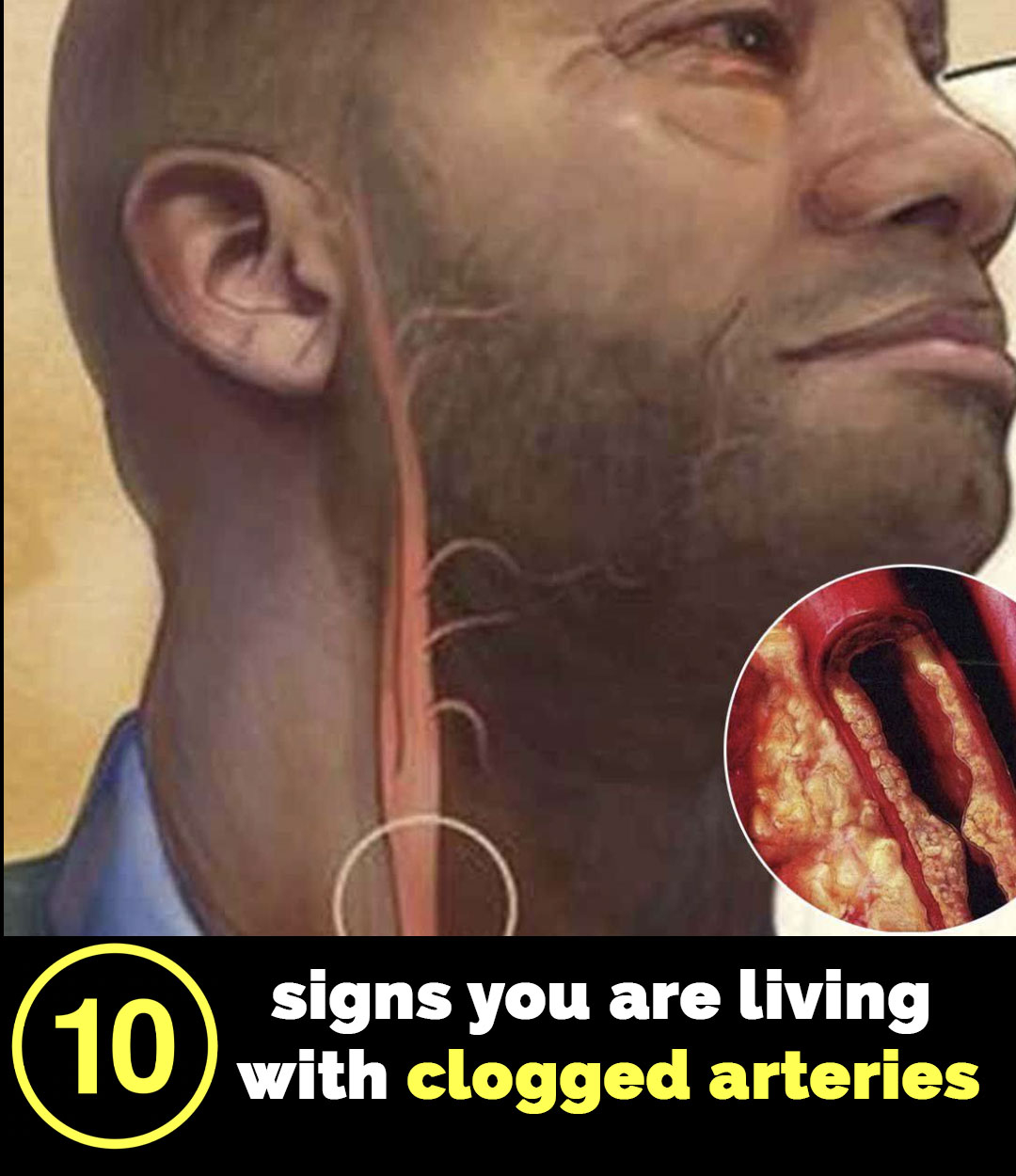10 Signs Your Arteries Might Be Clogged

In today’s fast-paced world, it’s crucial to stay informed about your health. Arteries can become clogged over time, leading to serious health issues like heart attacks and high blood pressure. Recognizing the early signs of clogged arteries can help you seek medical attention before things get worse. Here are 10 warning signs you shouldn’t ignore.
1. Nausea
Nausea is a common symptom for many conditions, but when it appears alongside other symptoms like chest pain or shortness of breath, it could signal a problem with your arteries. If you’re frequently feeling nauseous without a clear reason, it’s worth consulting a doctor.
2. Chest Pain
Chest pain, also known as angina, is one of the most common signs of clogged arteries. This happens when plaque buildup restricts blood flow to the heart. The pain can radiate to your left arm, shoulder, jaw, and upper back. Persistent chest pain is a serious symptom and requires immediate medical attention.
3. Shortness of Breath
Experiencing shortness of breath during physical exertion is normal, but if you frequently find yourself out of breath without any apparent reason, it may be due to clogged pulmonary arteries. It’s essential to get this checked out by a doctor.
4. Weakness or Numbness in One Side of Your Body
Blocked carotid arteries can reduce blood flow to the brain and cause numbness or weakness on one side of your body. If you experience this, especially if it affects your face, tongue, or other areas on one side, seek medical attention immediately.
5. Slurring of Words
Difficulty speaking or slurred words can be a sign of clogged carotid arteries, which can impact blood flow to the brain or the muscles involved in speech. If this occurs, it’s crucial to seek medical advice.
6. Vision Loss
A blockage in the carotid arteries can also affect vision, leading to sudden blurry or lost vision in one or both eyes. If you notice a sudden change in your vision, it’s important to get it checked right away.
7. Leg Pain
Pain in your legs, especially when it’s unexplained and doesn’t relate to an injury, could indicate blocked arteries in your legs. Reduced blood flow can cause discomfort and, if left untreated, may lead to further complications.
8. Cold Feet
Poor circulation caused by blocked peripheral arteries can make your feet feel unusually cold. If this is a frequent issue for you, it might be a sign that blood isn’t circulating as it should, and you should talk to a healthcare professional.
9. Delayed Healing for Foot Injuries
If you notice that foot injuries take longer to heal, it may be due to poor blood flow caused by blocked arteries. Blood is essential for healing, and without proper circulation, recovery can be delayed.
10. Heart Palpitations
A racing or pounding heart can be a sign that your blood flow isn’t functioning properly. If you experience palpitations frequently or notice them accompanied by other symptoms like dizziness or chest pain, it’s essential to get evaluated by a doctor.
Conclusion
If you’re experiencing any of these symptoms, it’s crucial to take them seriously. Clogged arteries can lead to life-threatening conditions, but with early detection and medical intervention, you can prevent further damage. Always consult a healthcare professional for an accurate diagnosis and treatment.
Disclaimer: This article is not intended to provide medical advice. Always consult a healthcare professional for guidance on your health.